Vernonia noveboracensis
A tall wildflower of late summer with deep-violet flowers
Vernonia noveboracensis New York ironweed
This native perennial wildflower has a flower color that cannot easily be mistaken for any other plant. Ironweed has flowers with a deep violet color. It has slender alternate leaves with no stalks. Like some other members of the aster family, ironweed has a composite flower head made from smaller individual disk florets but, in this case, no ray florets. Each flower head is about 0.5 to 0.75 inches wide and contains 30-50 individual tubular flowers. Brownish-green or purplish bracts surround the base of each flower head. This species has hair-like tips on the bracts.
Ironweed can grow from 3-7 feet high and is found in moist thickets and along stream banks. A tall erect stem branches multiple times towards the top and the flower clusters are terminal on those branches. The stem is usually downy. The alternate leaves are long and pointed at the tips and are usually toothed. The genus name honors William Vernon, an English botanist who collected in Maryland in 1698.
It can spread by both seed and by runners. The common name “Ironweed” comes from the tough stems that often persist over the winter. Ironweed often grows in the same environment as spotted Joe-Pye-weed producing an interesting contrast in colors.
Habitat & Range
Grows by stream banks, in wetlands, pastures, and meadows.
Present throughout the state.
Range: Grows from Pennsylvania, southeast New York, Massachusetts and south. It is less common south of South Carolina.
| EMP: | FACW |
|---|---|
| NCNE: | FACW |
Phenology
Flowers July to September.
Plant Codes
S-rank: S5 (Secure)
G-rank: G5 (Secure)
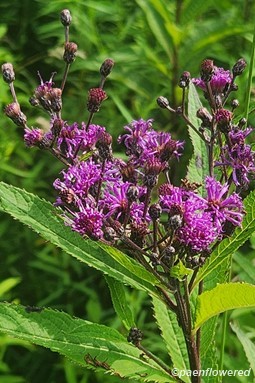
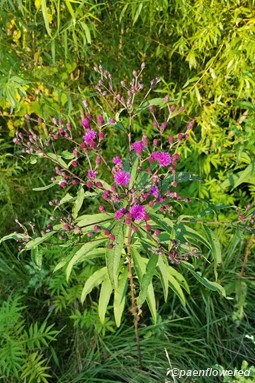
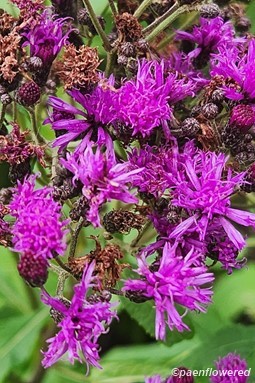
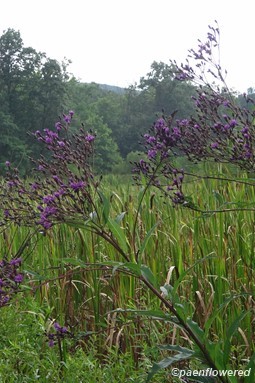
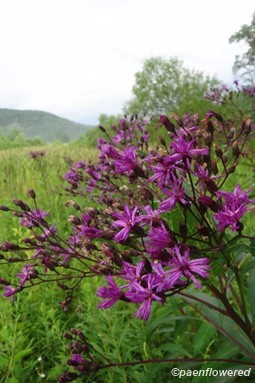
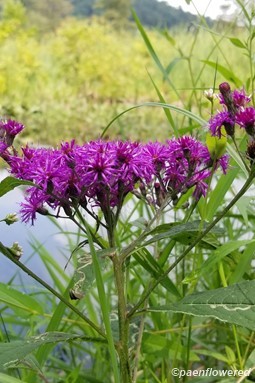
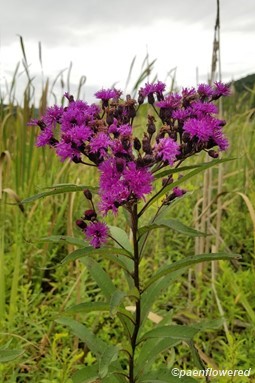
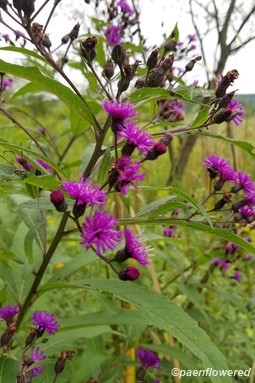
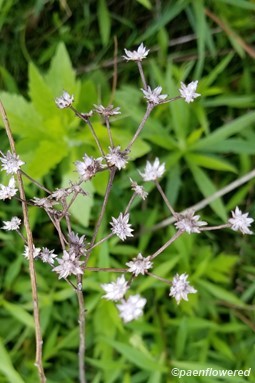


Comments
Have you spotted this plant in your area? We'd love to hear about your experience! Share your comments or questions about the plant below. Comments are moderated before posting.